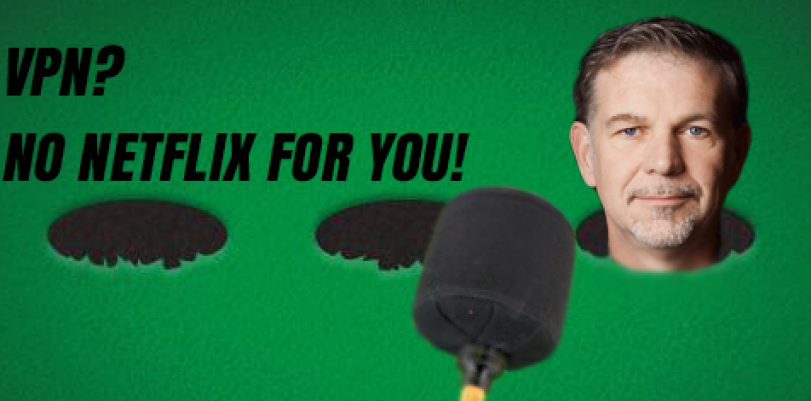Netflix.
The now-global behemoth that continues to expand it’s over 69 million user base. It’s a company that has commanded the attention of users on average for 10 billion hours a month. People rely on Netflix to watch ground-breaking shows like the controversial true-crime series Making a Murderer, Marvel’s new dark and grungyJessica Jones, or even the politically dark but always grossly compelling House of Cards.
And now, it’s a company that has officially coming out with arms swinging against users that use VPNs (virtual private networks) to get around geo-restricted content restrictions. David Fullagar, Netflix’s vice president of content delivery outlined the company’s stance in a blog post on their site. In this statement, Fullagar explains how he wants content to become universal in the future, but for now “given the historical practice of licensing content by geographic territories, the TV shows and movies we offer differ, to varying degrees, by territory. In the meantime, we will continue to respect and enforce content licensing by geographic location.”
Now, Netflix isn’t alone in this battle. The battle for content access is raging across multiple different streaming platforms–like with BBC, which recently took steps to strip VPN access to their streaming website iPlayer. Not only can users in geo-restricted locations not use VPN to access iPlayer, but users in the UK can’t even use a VPN while on the site or it won’t work. But unlike BBC iPlayer, Netflix seems to have a more global approach.
An essential element in Fullagar’s statement is that he makes this look temporary–since the company’s vision is to have Netflix have the same content everywhere. But, it’s taken Netflix a considerable amount of time to expand into new countries as it has, and it will take much more time to make its expanding library of content universal. In some ways, this gesture seems purely idealistic. Given this great length of time that users might be blocked from using a VPN with Netflix–where will they turn?
Some valiant VPN users are outraged at the prospect, with some frustrated users claiming that if Netflix goes through with the virtual blockade that they’ll cancel the service and start torrenting–which only propagates licensing issues and copyright infringement even further. Since many VPN users purchase VPNs for torrenting–I’m not surprised. By preventing VPN use, the very free-form access Netflix is trying to avoid might create more issues for the companies they are trying to protect. The impact of the block also might cost them a lot of money if users can’t access the content they want. Each user using a VPN to get their specific Netflix library IS a paying customer.
Most VPN websites even have guides that help their client base access Netflix with the help of a VPN–similar to our article, How to Unblock Netflix. Netflix’s chief of product Neil Hunt explained some of the futility: “we continue to rely on blacklists of VPN exit points maintained by companies that make it their job. Once [VPN providers] are on the blacklist, it’s trivial for them to move to a new IP address and evade.” However, not many VPNs are as vigilant as TorGuard, and many VPN users might find that their connections that once worked no longer do. When Netflix blocks VPNs, it’s truly up to VPN providers to provide new IP addresses and creative solutions for their vast client bases.
Even some of our favorite VPN providers like PIA have had some issues with IP addresses being blacklisted. If you have any questions about how to access Netflix with a VPN, or if your VPN will work with Netflix in the coming blockade, comment below or start a thread in our forums.
We’re here to help. Looking for a VPN recommendation? Read this article.
Long live VPN!

Paddy
Interestingly, my completely private server running OpenVPN solely for me is being blocked by Netflix. That may be because I was not routing all traffic through it — only specific Netflix servers. It would have been trivial for them to detect that and blacklist the IP. I will try spinning up a new server and routing everything through it. If that fails, then Netflix are being exceptionally clever.